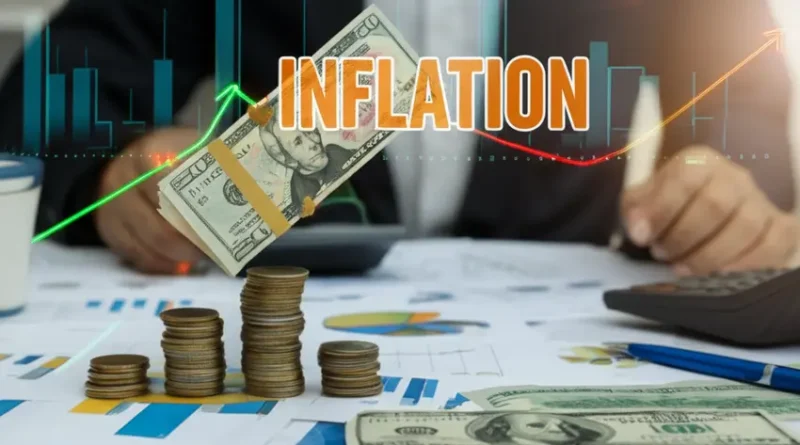The Impact of Inflation on Your Savings and Investments
Inflation is a critical economic indicator that affects everyone, particularly in the realm of finance. As prices rise, the purchasing power of money diminishes, which can have profound effects on your savings and investments. Understanding these impacts is essential for maintaining and growing your financial wealth.
To comprehend the impact of inflation, it’s important to first define what inflation is. Inflation refers to the rate at which the general level of prices for goods and services rises, subsequently eroding purchasing power. The Consumer Price Index (CPI) is one of the most commonly used metrics to gauge inflation levels. When inflation occurs, each dollar buys fewer goods and services than before, prompting savers and investors to reconsider how they manage their finances.
How Inflation Affects Savings
Traditionally, savings accounts and other forms of cash savings provide a sense of security and are often seen as a financial safety net. However, with inflation constantly on the rise, the value of the money in these accounts can decrease over time. For instance, if your savings account yields a mere 1% interest annually, but inflation is at 3%, your actual purchasing power declines by 2% each year.
Inflation can encourage consumers to spend rather than save since the cost of goods will likely increase in the future. This leads to a potential dilemma: while it’s prudent to save for emergencies and future goals, keeping a large amount of liquid cash in a regular savings account may prove detrimental over time.
The Role of Investments
Investments generally provide a hedge against inflation, especially those that involve stocks, real estate, or commodities. Historically, the stock market has outpaced inflation, allowing equity investments to grow your wealth over time. Companies can often adjust prices and, by extension, their earnings in response to inflation, which positively influences stock prices.
Real estate is another form of investment that tends to appreciate over time. Property values generally increase with inflation, making real estate a worthwhile investment for those looking to preserve their wealth. Additionally, rental income often rises with inflation, providing a steady stream of revenue that can keep pace with or exceed the rate of inflation.
Commodities like gold and silver often perform well during inflationary periods as they tend to increase in value when currency value decreases. These tangible assets serve as a hedge against inflation, as their intrinsic value remains relatively stable when paper currency fluctuates.
Strategies to Mitigate the Effects of Inflation
To effectively handle the impact of inflation on your savings and investments, consider diversifying your financial portfolio. Here are some strategies to help mitigate its effects:
- Diversification: By diversifying your investments across various asset classes—stocks, bonds, real estate, and commodities—you can create a balanced portfolio that is less vulnerable to inflation.
- Invest in Growth Stocks: Growth stocks, which belong to companies that are expected to grow at an above-average rate compared to their industry peers, often outperform inflation. Consider allocating more funds towards these high-potential investments.
- Consider Inflation-Protected Securities: Securities like Treasury Inflation-Protected Securities (TIPS) are designed to protect against inflation and could be a suitable option for conservative investors.
- Real Estate Investment Trusts (REITs): Investing in REITs allows you to gain exposure to real estate without the need to purchase physical properties while benefiting from potential income and appreciation.
- Review Your Financial Plan: Regularly revisiting your financial goals and strategies can help align your investment choices with current economic conditions and inflation rates.
Conclusion
Navigating the effects of inflation on your savings and investments may seem daunting, but with the right strategies and a proactive approach, you can protect and even enhance your financial position. As the economic landscape continues to evolve, staying informed and adaptable is crucial for securing your financial future.




